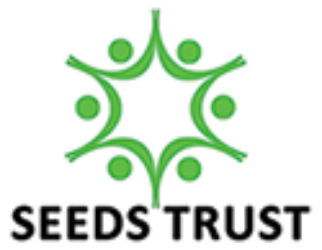About
-
Headquarters
Kanniyakumari, Tamil Nadu
-
Since
1997
SEEDS Trust is committed to driving positive societal change and environmental preservation. Comprising individuals with strong educational background Read mores, the organisation's core mission is to empower marginalized communities. It achieves this through a multifaceted approach, addressing physical well-being, education, environmental stewardship, and economic empowerment. It is focused on fostering self-reliant communities and aligns its work with the United Nations' Sustainable Development Goals, striving for global transformation from the grassroots level. Operating under the acronym SEEDS (Social Education and Environmental Development Scheme Trust), the organisation champions the conservation of forests, wildlife, and local ecosystems. It accomplishes this by raising awareness within local communities and equipping them with sustainable livelihood skills. It has provided critical skill training to 150 rescued Dalit bonded labour girls, educated 40 tribal women in broomstick production, and trained around 250 street and working children in two-wheeler repair. Furthermore, the Trust has initiated the Slender Loris conservation project across 30 villages, benefitting 800 farmers involved in vegetable cultivation near natural habitats and 150 families engaged in forest product collection.
Cause Area
Sector
Impact
SEEDS Trust has made a significant impact by providing skill training to 150 rescued Dalit bonded labor girls, training 40 tribal women in broomstick making, and equipping 250 street and working children with skills in two-wheeler repair.
Programs
-
The Bee Keeping Project
SEEDS Trust, operating under the acronym TWBP, has initiated two 3-year projects in collaboration with The World Bee Project (TWBP), UK. The first, the "Ayyalur Beekeeping Project," running from 2022 to 2024, enhances the livelihoods of 40 rural women in 20 Ayyalur landscape villages through honey production and agricultural pollination research. It promotes sustainability and resource conservation. The second, the "Mangrove Beekeeping Project," benefits 40 fisherwomen in 10 Pandiyar river estuary villages, Tamil Nadu, India, over three years. It includes beekeeping, biodiversity conservation, and crop pollination research. Each participant receives 5 beehives, with 600 beehives distributed in total over three years. Moreover, 6000 nectar-yielding plants are planted annually to support local beekeeping efforts.
-
Tamil Nadu Afforestation Programme(TAP)
SEEDS Trust promotes community involvement through initiatives like Village Forest Councils, water conservation, GIS technology, holistic village development, employment opportunities, Self Help Groups (SHGs), and micro-credit support. To sustain the gains from TAP-I, Tamil Nadu's Afforestation Project Phase II (TAP II) began in 2005-2006 with JBIC funding of Rs. 567.42 crores. Over 8 years until 2012-2013, TAP II focused on ecological restoration, Joint Forest Management for livelihoods, and poverty reduction. SEEDS Trust continues its active role in social mobilization, awareness building, and institutional development, with efforts spanning the Dindigul and Karur districts, including overseeing Village Forest Councils, empowering 28 women's SHGs, and facilitating extensive water and soil conservation and tree planting.
-
Sumangali Scheme Programme
This project focuses on rehabilitating young women who have survived the exploitative bonded labour system prevalent in Tamilnadu's textile mills, particularly in the Dindigul area. These mills employ teenage girls under false pretences, subjecting them to unsafe and exploitative working conditions. While Government interventions often rescue these women, proper rehabilitation is lacking. The project aims to provide counselling, alternative employment, vocational training in tailoring and garment making for 50 women, and support them in establishing profitable garment production and sales centres. Additionally, legal aid is extended to parents and affected girls, seeking compensation for injuries and unpaid scheme dues.
-
HIV Awareness, Care & Support Programme
SEEDS initiated an HIV/AIDS awareness program in 30 tribal villages within the Ayyalur forest region, targeting migrant labourers and high-risk groups. Cultural events, skits, street theatre, and awareness songs were used alongside informative materials covering transmission, prevention, and care. It empowered 25 HIV/AIDS-affected widows and women-led families by offering income-generating activities. Recognizing their social isolation due to stigma, it provided training in low-cost goat rearing and country chicken farming. These initiatives allowed women to earn regular income while fostering asset-building and self-sufficiency. The project's impact included improved economic, nutritional, and socio-economic well-being for 25 families.
-
Street & Working Children Support Programme
SEEDS Trust, a rights-focused organisation, operates in Dindigul District, Tamil Nadu, India, concentrating on disadvantaged and vulnerable children. It has positively impacted 582 at-risk children, with 164 receiving support in Dindigul and Palani shelters. Furthermore, 41 children were successfully reunited with their families, while an additional 45 children benefited from essential services, including education, food, and shelter, through residential care programs in Dindigul and Palani. The organisation also celebrated Children's Day, drawing participation from over 1,000 children and witnessed by 1,500 community members across the project areas.
-
Sustainable Agriculture Programme
StateThe Cauvery River, a lifeline for Tamil Nadu's agriculture, meanders southeast for 475 miles through Karnataka before reaching the state. SEEDS is committed to a significant initiative in Tamil Nadu, converting 750 acres of semi-desert wasteland into a sustainable area, combatting soil infertility through nitrogen fixation. This transformation yields economic benefits like fuelwood, fodder, timber, and fruit cultivation. Despite farmers' eco-friendly organic practices, recent technologies disrupted natural harmony, driving dependence on external inputs and debt. SEEDS endeavours to reintroduce community knowledge on organic practices, including composting, bio-waste, and biomass methods, fostering increased production, conservation, and local food security.
Leadership Team
-
Muthusamy Palanivel
Founder
M&E
-
Internal, External Assessors
No
Policies
-
Ethics and Transparency Policies
No
-
Formal CEO Oversight & Compensation Policy
No
Political & Religious Declarations
-
On Affiliation if any
No
-
On Deployment Bias if any
No
Registration Details
-
PAN Card
AACTS5422L
-
Registration ID
1/1997
-
12A
464/100/CIT-II/2001-02
-
80G
C.No.464/100/CIT-II/2001-02/80G
-
FCRA
075890286
-
CSR Registration Number
Not Available
Location
Other Details
-
Type & Sub Type
Non-profit
Trust

